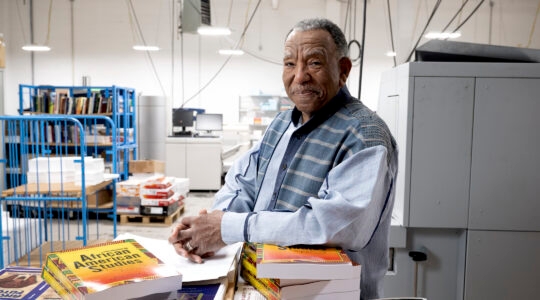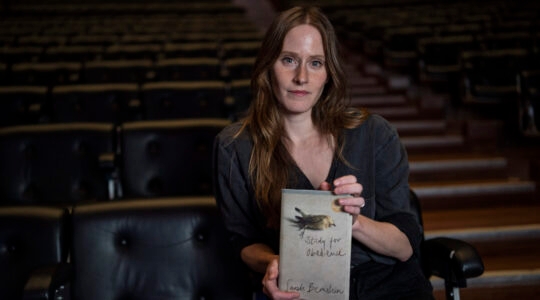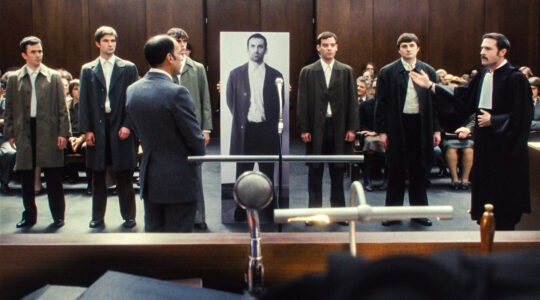Menachem Rosensaft, vice president of the American Gathering of Jewish Holocaust Survivors and Their Descendants, has an opinion piece up at Hunffington Post defending Hannah Rosenthal, the Obama administration’s envoy on anti-Semitism:
Hannah Rosenthal, who was appointed as the State Department’s Special Envoy to Monitor and Combat Anti-Semitism in December, is not only superbly qualified to spearhead the US Government’s efforts to mobilize international opposition to a centuries-old scourge that has once again become a clear and present danger of ever increasing dimensions. She brings to her office the unique perspective of a daughter of a man who was persecuted and tortured for no reason other than the fact that he happened to have been born a Jew.
Rosenthal served as executive director of the Jewish Council for Public Affairs, the policy arm of the organized American Jewish community, and is a former executive director of the Chicago Foundation for Women. She was Midwest regional director of the US Department of Health and Human Services during the Clinton Administration. Because she had been a member of the advisory board of J Street, the simultaneously pro-Israel and peace-oriented advocacy group, Jewish paleo-conservatives and right wing bloggers proclaimed themselves shocked, shocked to discover that President Obama had appointed yet another progressive activist to his administration.
Indeed, she is anything but a conventional mainstream organizational executive. As the JCPA’s senior professional, according to a recent editorial in the New York Jewish Week, she "sometimes confronted an entrenched old-boys network that was uncomfortable with her outspoken liberalism, not to mention her gender. But Rosenthal also displayed a striking ability to win over many of her detractors," and she is "someone who sees the fight against anti-Semitism as the quintessential human rights issue." …
The main hole in Rosensaft’s piece is that it fails to address the main reason that concern over Rosenthal went mainstream — her criticisms of Israel’s ambassador over his treatment of J Street. That said, it’s worth reading for some interesting biographical background (Rosenthal’s father was a rabbi who survived Buchenwald), plus some insight into her thinking on anti-Semitism.
She is especially concerned by the rise of new forms of anti-Semitism that require new and innovative responses. In particular, she advocates forming coalitions across ethnic and religious lines to counter what she terms the "insidious" spread of anti-Semitic rhetoric in the mainstream media and other public settings. "As with any form of prejudice," she believes, "anti-Semitism is often based in ignorance and fear. It is easy to criticize and even demonize people you’ve never met. Building relationships among different ethnic and religious communities is central to tearing down walls of hostility. With dialogue, there is less room for stereotypes to grow and flourish."
Among her priorities is calling attention to the increase and spread of Holocaust denial as a new form of anti-Semitism in popular culture, especially in parts of the Muslim world. "It is appalling," she told me, "that notorious anti-Semitic tracts continue to have a considerable market in many countries, especially among teenagers and young adults. Along the same lines, we must make every effort to stop the inculcation of anti-Semitism in children through textbooks and children’s books. If we can’t get the next generation to be free of the anti-Semitic attitudes, we cannot meaningfully combat anti-Semitism."
Rosenthal is also deeply troubled by the double standard with which the State of Israel is treated at the United Nations. She notes that between 2001 and 2007, there were more than 50 UN resolutions criticizing Israel’s human rights record, in contrast to only five targeting North Korea, and eight targeting Sudan. At the same time, she believes that "we must also seize on the few positive opportunities that the UN provides – including the 2007 resolution condemning Holocaust denial and the UN’s annual Holocaust commemoration – as potential educational tools in countries around the world."

Help ensure Jewish news remains accessible to all. Your donation to the Jewish Telegraphic Agency powers the trusted journalism that has connected Jewish communities worldwide for more than 100 years. With your help, JTA can continue to deliver vital news and insights. Donate today.





